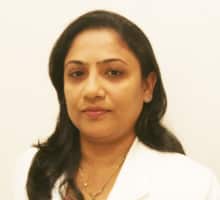Request Appointment
Enter your details and we will be in touch with you shortly;
Or call
8655885566
between 8 am and 8 pm.

Back Pain among children has increased 4X in the last 5 years

The symptoms of back pain in children can vary depending on the type of pain and the root cause of the problem. Some of the most common symptoms associated with back pain include:
 Professional diagnosis required
Professional diagnosis required Chronic, can last for years
Chronic, can last for years Treatable with 4 weeks of QI Spine Therapy
Treatable with 4 weeks of QI Spine TherapyBack pain in children is often due to injury and in most cases it is a temporary problem that can be resolved with a combination of adequate rest and low- intensity exercises. However, back pain in children can be caused by serious spinal problems such as:
 Professional diagnosis required
Professional diagnosis required Chronic, can last for years
Chronic, can last for years Treatable with 4 weeks of QI Spine Therapy
Treatable with 4 weeks of QI Spine TherapyBack pain in kids, especially persistent back pain, should not be ignored. Effective and timely treatment will ensure that the back pain doesn’t become chronic. Nevertheless, treatment with pain medications is best avoided, as they can impact a child’s growth and development. Instead, the precise cause of back pain should be identified, allowing for restorative therapy and strengthening treatments that not only eliminate pain, but also lower the risk of chronic back pain later in life.
QI Spine Clinic uses the most advanced diagnostic technology, Digital Spine Analysis (DSA), to measure spine function. Once the precise source of the pain is identified, our specialists formulate treatment plans using a variety of techniques like K-tapping and Mckenzie’s method. This helps to strengthen the muscles, limiting the risk of any excessive stress on the spine.
QI customises every treatment protocol depending on the needs of each patient. These protocols are derived from an algorithm based on over 47,000 past cases; this ensures that child with back pain receives treatment that is best suited to his/her needs. Parents are also advised to make appropriate lifestyle modifications to improve their child’s posture as this will help to prevent back pain. In cases where back pain in children results from structural abnormalities like scoliosis, QI Spine specialists may also recommend Schroth exercises.
Back pain in children is usually non-threatening and can be easily resolved if addressed early. Ignoring the condition can also give rise to more debilitating and chronic back pain.
 Professional diagnosis required
Professional diagnosis required Chronic, can last for years
Chronic, can last for years Treatable with 4 weeks of QI Spine Therapy
Treatable with 4 weeks of QI Spine TherapyBack pain in kids, especially persistent back pain, should not be ignored. Effective and timely treatment will ensure that the back pain doesn’t become chronic. Nevertheless, treatment with pain medications is best avoided, as they can impact a child’s growth and development. Instead, the precise cause of back pain should be identified, allowing for restorative therapy and strengthening treatments that not only eliminate pain, but also lower the risk of chronic back pain later in life.
QI Spine Clinic uses the most advanced diagnostic technology, Digital Spine Analysis (DSA), to measure spine function. Once the precise source of the pain is identified, our specialists formulate treatment plans using a variety of techniques like K-tapping and Mckenzie’s method. This helps to strengthen the muscles, limiting the risk of any excessive stress on the spine.
QI customises every treatment protocol depending on the needs of each patient. These protocols are derived from an algorithm based on over 47,000 past cases; this ensures that child with back pain receives treatment that is best suited to his/her needs. Parents are also advised to make appropriate lifestyle modifications to improve their child’s posture as this will help to prevent back pain. In cases where back pain in children results from structural abnormalities like scoliosis, QI Spine specialists may also recommend Schroth exercises.
Back pain in children is usually non-threatening and can be easily resolved if addressed early. Ignoring the condition can also give rise to more debilitating and chronic back pain.
 Professional diagnosis required
Professional diagnosis required Chronic, can last for years
Chronic, can last for years Treatable with 4 weeks of QI Spine Therapy
Treatable with 4 weeks of QI Spine Therapy


Have a question?
Ask our spine specialists
Who is a QI Spine Specialist?
A QI Spine Specialist is a medical expert with

Dr. Nidhi Sanghvi Shah

Dr. Shital Gaikwad

Dr. Richa Bhatia
9000 hours
of specialisation in treating back and neck conditions
32 hours
of spine physiotherapy specialisation methods in McKenzie concepts, Kinetic control, Neurodynamic solutions, Mulligan’s concepts
500 hours
and 6 months of QI Spine specialisation courses